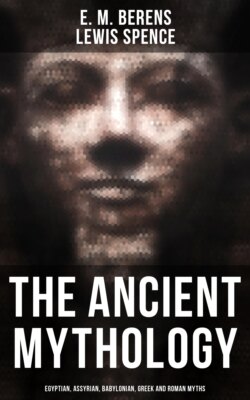Читать книгу The Ancient Mythology: Egyptian, Assyrian, Babylonian, Greek and Roman Myths - Lewis Spence - Страница 109
На сайте Литреса книга снята с продажи.
Asshur as Conqueror
ОглавлениеAn incident which well illustrated the popularity of the Assyrian belief in the conquering power of the national god is described in an account of the expedition of Sargon against Ashdod stamped on a clay cylinder of that monarch's reign. Sargon states that in his ninth expedition to the land beside the sea, to Philistia and Ashdod, to punish King Azuri of that city for his refusal to send tribute and for his evil deeds against Assyrian subjects, Sargon placed Ahimiti, nephew of Azuri, in his place and fixed the taxes. But the people of Ashdod revolted against the puppet Sargon had placed over them, and by acclamation raised one Yaran to the throne, and fortified their dominions. They and the surrounding peoples sought the aid of Egypt, which could not help them. For the honour of Asshur, Sargon then engaged in an expedition against the Hittites, and turned his attention to the state of affairs in Philistia (c. 711 B.C.), hearing which Yaran, for fear of Asshur, fled to Meroc on the borders of Egypt, where he hid ignominiously. Sargon besieged and captured the city of Ashdod, with the gods, wives, children, and treasures of Yaran.
It is plain that this punitive expedition was undertaken for the personal honour of Asshur, that he was believed to accompany the troops in their campaign against the rebellious folk of Ashdod, and that victory was to be ascribed to him and to him alone. All tribute from conquered peoples became the property of Asshur, to whom it was offered by the Kings of Assyria. Even the great and proud monarchs of this warlike kingdom do not hesitate to affirm themselves the creatures of Asshur, by whom they live and breathe and by whose will they hold the royal authority, symbolized by the mighty bow conferred upon them by their divine master. That these haughty rulers were not without an element of affection as well as fear for the god they worshipped is seen from the circumstance that they frequently allude to themselves as the sons of Asshur, whose viceroys on earth they were. Asshur was, indeed, in later times the spirit of conquering Assyria personalized. We do not find him regarded as anything else than a war-god. We do not find him surrounded by any of the gentler attributes which distinguish non-militant deities, nor is it likely that his cult would have developed, had it lasted, into one distinguished for its humanizing influence or its ethical subtlety. It was the cult of a war-god pure and simple, and when Asshur was beaten at his own business of war he disappeared into the limbo of forgotten gods as rapidly as he had arisen.
